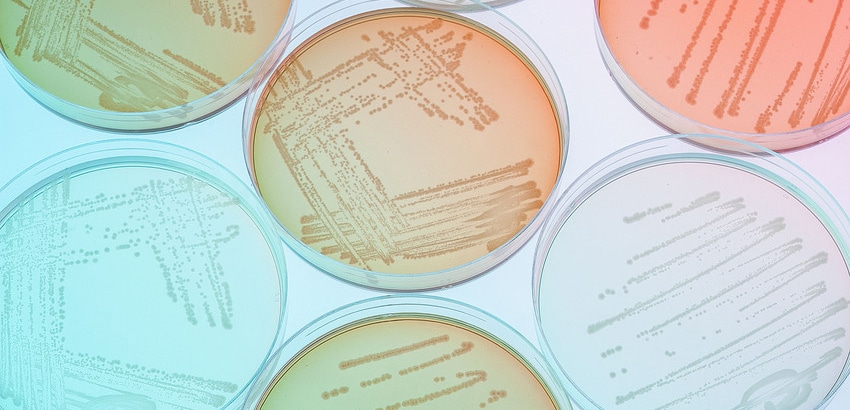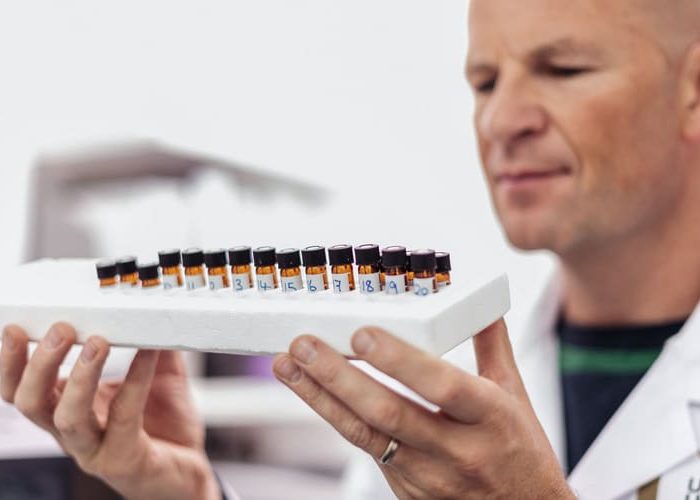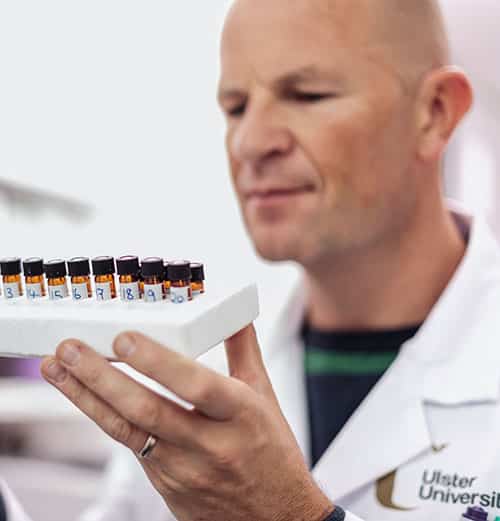Blogs
Keep up with all the latest thoughts and opinions.
We make it happen.
Different types of postgraduate biomedical science degrees, explained
Friday, May 19th, 2023

Studying for a postgraduate degree in biomedical science is a great way to gain additional training and enhance your career potential. However, before enrolling on a programme too hastily, it’s important to know what type of course options there are.
To follow up our comprehensive guide on how to become a biomedical scientist, we’re looking at the different types of postgraduate biomedical science degree including the key differences between PhD and Masters programmes, with information on course content and graduate career opportunities.
At Ulster University, we offer several ways to advance in the field of biomedical science, including our innovative, online Biomedical Science MSc, in addition to a selection of MRes and PhD opportunities. As a flexible, part-time programme, the online MSc is a great way for working biomedical scientists to take the next step in their careers, without needing a career break.
Read on to discover the different types of postgraduate biomedical science degree, including the difference between Masters and PhD offerings, at Ulster and beyond.
What types of postgraduate biomedical science degree can I take?
There are several types of postgraduate biomedical science degrees that you can pursue, depending on your interests and career goals. Some common options include:
Master of Science (MSc) in Biomedical Science:
This programme typically covers advanced topics in microbiology, genetics, immunology, and other biomedical disciplines. It may involve a research project or thesis and will prepare you for a variety of careers in research, healthcare, or industry.
Doctor of Philosophy (PhD) in Biomedical Science:
This degree program involves conducting original research in a specific area of biomedical science and writing a dissertation based on the findings. It can prepare you for a career in academia or research.
Masters of Research (MRes) in Biomedical Science:
This is an integrated Masters programme with a significant research component, providing training in a range of research-related skills relevant for advanced study in the field.
Postgraduate Certificate (PG Cert) in Biomedical Science:
This qualification is sometimes offered as a standalone programme or as the first stage of an MSc and provides an early-stage career route into healthcare or research.
Postgraduate Diploma (PG Dip) in Biomedical Science:
This qualification is the next stage after completing a PG Cert, sometimes offered as a standalone qualification or as the second stage of an MSc and provides an intensive, focused education in biomedical science to prepare you for a career in healthcare or research.
Professional Doctorate in Biomedical Science:
This degree programme is designed for working healthcare professionals who wish to pursue advanced research and clinical practice in a specific area of biomedical science.
What is the difference between a Masters and a PhD?
Whilst there is some degree of overlap, the main difference between a Masters and a PhD is the purpose of each qualification.
A Masters aims to expand your existing knowledge in a particular subject area to obtain ‘mastery’, usually through a selection of taught modules. On the other hand, the purpose of a PhD qualification is to make an original contribution to your field.
According to FindAPhD, on a PhD programme, you should expect a higher degree of both independence and responsibility, building expertise and research know-how while also attempting to drive forward new ideas in your research area.
What can you do with a Masters in Biomedical Science?
With a Masters in biomedical science you will enhance your field knowledge and skills, gain a specialism and build the confidence to conduct your own biomedical research. Depending on your specialist area of interest, after graduation you could work in a range of professional healthcare roles, including (but not limited to):
- Research scientist
- Biomedical scientist
- Microbiologist
- Toxicologist
- Forensic scientist
- Biotechnologist
If you’d like to know more about careers in the field after your Masters degree, see our blog post: What can you do with a Masters in Biomedical Science?
How long does a Masters in Biomedical Science take?
Usually, gaining a Masters degree in the UK will take one year for full-time studies or two to three years part-time.
Ulster University’s Biomedical Science MSc is a part-time programme designed for working professionals and takes a minimum of two years to complete with the option to take breaks if needed.
If you’re wondering about the feasibility of studying a Masters online, particularly in the hands-on world of biomedical science, find the answers to some frequently asked questions in our blog Can I get a biomedical science degree online?
What will I learn on a Masters programme?
As a Masters graduate, you will emerge with enhanced career prospects, advanced practical skills and a critical awareness of professional practice, enabling you to take up more senior roles in the biomedical sector or bioscience industry.
As a graduate of an IBMS-accredited programme, you are also eligible for membership of the Institute of Biomedical Science (IBMS), at which point you may apply for Chartered Scientist status in the UK.
Learning outcomes of the MSc include:
- A flexible approach to problem-solving in the field
- Improved skills, knowledge and the competency to take on a greater supervisory role
- The ability to independently reflect on your practice and the initiative to solve diverse problems
- The ability to critically appraise the relative merits and limitations of the techniques used in your chosen specialism
- A critical awareness of the principles that relate to professional practice, scientific integrity and ethical issues
- A responsible approach to the promotion of new developments and the maintenance of standards within the sector.
Is a Masters in Biomedical Science worth it?
If you are looking to progress in your biomedical science career in the UK, a Masters degree is arguably the most straightforward and accessible way to do it.
Whatever your career ambitions, a Masters degree will help you develop professional skills alongside a long list of transferable skills, such as problem-solving, time management and team working.

How much does a Masters in Biomedical Science cost?
The cost of a Biomedical Science Masters can vary depending on the length of the course and the reputation of the institution. In the UK, a full-time laboratory-based Masters degree costs an average of £10,300 per year for UK students and an average of £20,100 per year for international students.
Part-time and online offerings tend to be more cost-effective, and you’ll also save on accommodation and travel costs. Ulster’s online MSc in Biomedical Science is costed at £666.25 per 15-credit module in 2022/23. The total number of credits for the Masters is 180 credits.
Can you do a PhD without a Masters?
A Masters is normally not a prerequisite for studying a PhD. If you apply for a PhD without a Masters, you will need to hold at least an undergraduate degree (2:1 or above) in a relevant subject and some research experience. A strong research proposal may also be required unless you are applying for a funded PhD with a proposed project.
You should also note that a PhD is a highly specialised qualification, and your PhD course title will reflect this. Doctorate students may have limited academic instruction and will be expected to conduct the bulk of their work under self-direction.
Alternative routes include integrated programmes such as the MRes, which allows you to cover Masters content before advancing onto a PhD programme (though, in many cases, completion of an MRes or MSc does not guarantee entry to the PhD).
What can you do with a PhD in Biomedical Science?
A PhD is the highest level of academic qualification you can achieve and will build a range of field-specific and transferrable skills that can be applied across a multitude of sectors and job roles.
A PhD in biomedical science is often considered a gateway to careers in biomedical research and will showcase your advanced level knowledge to employers.
Roles available to PhD degree holders include:
- Academic researcher / Medical researcher
- Specialist biomedical scientist
- University professor
- Lab director / Lab supervisor
- Molecular / cellular scientist
- Neuroscientist
How long does it take to complete a PhD in Biomedical Science?
Typically, a full-time PhD offered in the UK takes around three to four years to complete. Part-time PhD programmes will be significantly longer, between five to seven years.
What will I learn on a PhD?
PhD learning outcomes will depend heavily on the research focus of your PhD project, but you’ll also develop a range of cross-disciplinary skills. These skills include:
- Scientific writing and presentation
- Complex problem-solving
- Critical thinking
- Advanced research skills
- Meticulous attention to detail
- Research management / project management
- Leadership
- Collaboration
Is a PhD in Biomedical Science worth it?
Depending on your career aspirations, a Doctorate in Biomedical Science can be a good way to gain recognition in the field and build a portfolio of research in a specialized area.
Advanced specialisation is required at PhD level, meaning that you will drill down on a particular subject of interest and develop expertise in that area. This knowledge will then allow you to form opinions and question authority within your specialist area, writing a dissertation to back up your ideas.
A PhD – as one of the most advanced qualifications you can attain – is a considerable time commitment but extremely well respected in both academic and medical realms.
How much does a PhD in Biomedical Science cost?
The yearly fee for a full-time PhD programme in the UK is usually in the region of £4,500 per year for UK-based students. If your PhD lasts four years, this will equate to a total of £18,000 in fees.
For international students (including now EU students), the annual tuition fee costs around £23,500/year, equating to £94,000 over the span of four years. Annual fees for part-time, online programmes may be considerably cheaper for all students.
Doctorate vs Masters comparison chart
See our infographic below for a visual comparison of an MSc and PhD in Biomedical Science, looking at entry requirements, learning outcomes and more.
MSc vs PhD in Biomedical Science |
||
| Masters | PhD | |
| Programme length | Part-time: 2 years
Full-time: 1 year |
Part-time: 5-6 years
Full-time: 3-4 years |
| Curriculum | A comprehensive view of the field, with opportunities to find your research specialism | A specialist education with a strong focus on research |
| Experiential learning | Dissertation on a research project and taught content | Completion of an approved programme of original research and related studies, and submission of a thesis |
| Entry requirements |
|
|
| Assessment method |
|
|
| Learning outcomes |
|
|
| Graduate career opportunities |
|
|
| Programme cost |
|
|
Study an MSc online with Ulster University
At Ulster University, our unique online Biomedical Science MSc is open exclusively to biomedical professionals with laboratory access.
A flexible, part-time programme, the Biomedical Science MSc is considered a great way to specialise without needing a career break, all while growing an international network of like-minded peers, academics and scientists, and conducting research to benefit your organisation.


